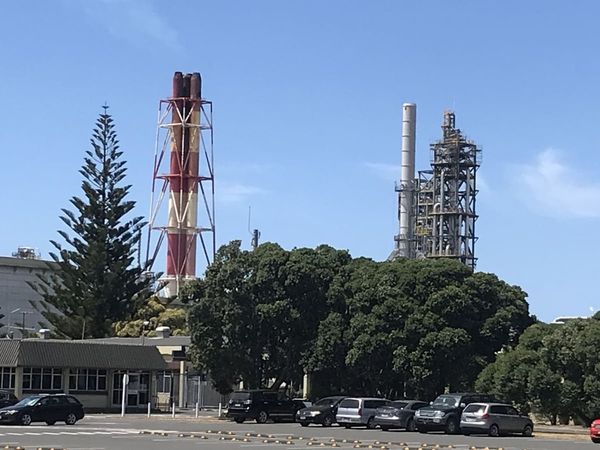
The Government's decision to extend fossil fuel subsidies for a further five months raises red flags for the hard but necessary transition to a low-carbon economy
Comment: With no end in sight to the war in Ukraine or the other inflationary pressures on the price of oil, the Government has now found itself stuck subsidising petrol and diesel indefinitely.
Sunday's extension of the 25 cent cut to the fuel excise duty and equivalent reduction in road user charges (alongside the halving of public transport fares) for another five months makes sense, given the price at the pump is now higher than it was when the scheme was introduced back in March. No sane government would increase fuel bills by another 25 cents per litre in this economic and political context.
But the decision also punts the end-date of the scheme into election year, making it even less likely that the fuel taxes and road user charges will return to their pre-inflation levels anytime soon.
There's no easy solution to this predicament. The spike in fuel prices is out of the Government's hands - nearly two decades of data shows clearly that what drivers pay at the pump is closely linked to the international price of crude oil.
However, as I wrote in March, there are things the Government could do to bolster the country's resilience to future oil shocks. They're also the things we need to do to reduce carbon emissions in line with what the science says is required to limit global warming to 1.5 degrees above preindustrial levels.
That is: Replace as much of our reliance on fossil fuels with demand for homegrown, clean electricity, as fast as possible.
There's no doubt that electrifying transport, industry and everything else we can will protect us from the impacts of increasingly volatile energy commodities markets.
Take a look at more resilient countries, like Norway, where a quarter of vehicles are electric. There, fuel prices over the past year have risen 20 percent less than in New Zealand, after adjusting for our fuel excise cut, and far fewer drivers are exposed to those increases.
By other standards, New Zealand already has some resilience to the current energy crisis. In the UK, household energy bills could triple by October, compared to the same time last year - and 90 percent of that rise is due to the skyrocketing price of fossil gas. Relatively few households use gas for heating or cooking in New Zealand, meaning we're feeling the most pain from the energy crisis at the pump (and in other products reliant on fuel for distribution).
We know that electrification works. But the Government's reaction to the current energy crisis raises doubts that it can muster the political willpower to help the country make that transition.
Moving to an electrified, low-carbon economy is eminently doable, according to the advice from the independent expert Climate Change Commission. But it won't be easy. Government can smooth the path, but particularly vulnerable industries and communities will still be challenged during the transition.
The Government's reaction to the fuel price spike offers little confidence it will stick with a transition that poses similar threats to low-cost polluting.
It's important to note the current rise in the price of fuel has nothing to do with climate policy. The carbon price component of the average petrol bill has increased by less than 6 cents in the past year, compared to a 70 cent rise in the cost to importers and a 22 cent rise in importer profits.
That said, the point of a carbon price and most other climate policy is to make polluting more expensive. A successful Emissions Trading Scheme ought one day to raise the price of petrol at least to where it stands today. The Climate Change Commission's modelling indicated the price per litre could rise by 30 cents by 2035 as a result of its recommended emissions budgets.
Successive governments have bent over backwards to stop the Emissions Trading Scheme price from rising - or, if it rises, to shield the entire economy from that impact.
The current Government's reforms to the scheme have enabled a rise in carbon prices since 2020. But its modifications also allow for additional pollution in an attempt to dampen that rise. Stringent price controls have also hampered the carbon price from finding the suitable level needed to drive change, with the Climate Change Commission recommending last year that they be loosened to allow for a price of up to $140 by 2030 - double the current level.
This is where the rubber hits the road. At some stage in the near future, this or another government will be faced with a spike in the cost of polluting brought on as an intentional result of climate policy.
That government will have two options: to shield the vulnerable to the extent it can and shepherd the country through to an electric future, or to back down, cut carbon prices and give up on any claim to meaningful climate action.
Let's hope they'll make a different decision than the current Government has with its indefinite fossil fuel subsidies.










